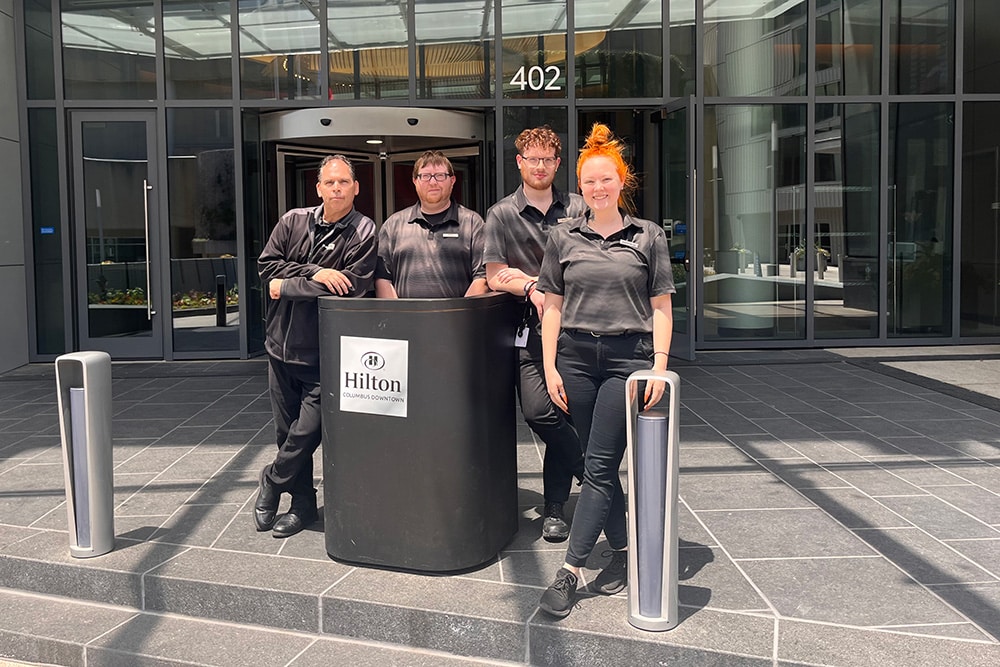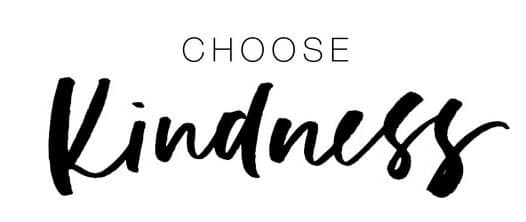On the Frontline
“Begin challenging your own assumptions. Your assumptions are your windows on the world. Scrub them off every once in a while, or the light won’t come in.”
—Alan Alda
I pass Through a lot of airports…and I do mean A LOT of airports. As an avid people watcher and eavesdropper extraordinaire, I’m always silently poking my nose into the business of fellow travelers. Sometimes what I overhear or see is uplifting; other times it challenges every fiber of my being to remain silent or uninvolved.
Recently, I arrived for an early morning flight out of a busy Midwestern airport. Morning flights are usually a safe bet – very few short-tempered people and plenty of the day left to rearrange disrupted travel plans. As I started my walk down the long corridor toward the gates, I heard someone running up from behind. I turned in time to see an airport police officer as he trotted passed me. Based on previous observations and experience, this scenario had all the makings of becoming an interesting morning at the airport. Having arrived way too early for my flight, I knew there was ample time to satisfy my looky-loo curiosity. I picked up my pace to follow the officer as several possible scenarios ran through my mind: was there a troublemaker at one of gates? Maybe an unruly passenger arriving on an incoming flight? It might not be my business, but inquiring minds (and busybodies) want to know.
I rounded the corner and saw the officer quickly gaining on a young woman who was pushing two small children in two separate strollers. Perhaps she had been involved in an incident at the security checkpoint? Whatever had transpired, I was surely about to find out. From a slight distance, I observed as the officer began talking quietly with the woman. After a few seconds, her face relaxed into a gentle smile. She visibly exhaled as she angled the handles of one stroller into the officer’s hands. Turns out the officer had noticed the woman trying to wrangle two toddlers and all the travel accessories that go along with them. At this moment, his sole intent was to be of help to a frazzled Momma.
As I stood there, witnessing this officer’s act of empathy and kindness, it became obvious that I’d made a completely incorrect assumption about what was happening in front of me. To be sure, unruly behavior can (and does) happen in public places like airports. In our industry, we routinely experience others making bad assumptions about our professional role or the intent of our duties. We hear accusations like, “You’re not trying to help anyone—this is all about the money!” or “You enjoy making people angry, don’t you?” Certainly, we recognize assumptions of ill intent when hurled in our direction. If we accept this as true, are we also willing to recognize when we may be making similar incorrect assumptions of others?
Throughout our lives, we make assumptions—not all of them good or fair. We see or hear something familiar to us from previous experience and we assume we know what’s happening. We may even go so far as to stop listening to someone because we already “know” where this is going. When we make assumptions, we’re telling ourselves that something is true without having any evidence that it is. It becomes all too easy to conduct our lives never questioning that we are assuming things to be facts.
There’s a saying that I believe applies: “Assumptions are the termites of relationships.” Assumptions are insidious and can erode our ability to maintain perspective. When dealing with the public, it’s easy to become weary of hearing what we might label as manipulative stories or tired excuses. No one is well-served when we choose to stop listening and simply assume ill-intent. Instead, we create stories in our heads that are full of assumptions about the statements and behaviors of others. Typically, these “head stories” have little to do with reality and may escalate problems instead of providing any helpful resolution.
With a little self-awareness and effort, we can learn to modify our thought process to better avoid the assumption trap.
Before you make assumptions about anything, ask yourself:
- Do I have the facts or am I making an unfounded assumption?
- Am I more committed to proving I’m right or do I genuinely want to address the issue or concern?
Rather than interpret or guess what someone else is up to, you can ask them clarifying questions to help you determine their intent. Certainly, there will be times when our instincts are correct—and while we should continue to pay attention to our gut reactions, we must consciously avoid making unprofessional assumptions.
Cindy Campbell is IPMI’s senior training and development specialist. She is available for customized in-person or virtual training; click here for details.
-
Cindy Campbellhttps://parking-mobility-magazine.org/author/cindy-campbell/January 1, 2022
-
Cindy Campbellhttps://parking-mobility-magazine.org/author/cindy-campbell/March 3, 2022
-
Cindy Campbellhttps://parking-mobility-magazine.org/author/cindy-campbell/March 3, 2022


Kindness
Being kind is truly powerful. Think about what we could

Impacts of COVID and Customer Service
How many organizations are still dealing with impacts of COVID?









